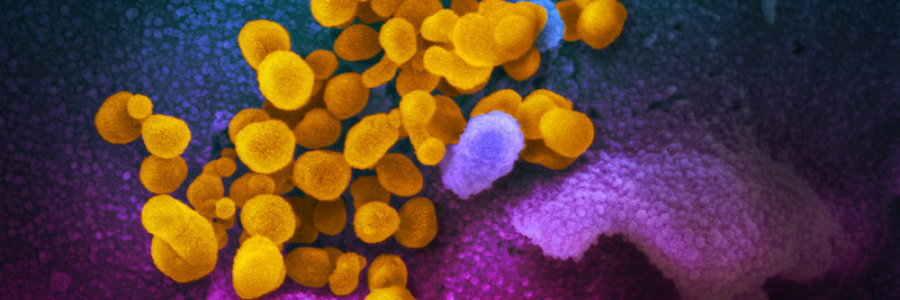COVID-19 Vaccine Candidates Show Gene Therapy is a Viable Strategy
ASGCT Staff - November 17, 2020
Findings from Moderna and Pfizer demonstrate that gene therapy is a viable strategy for developing vaccines to combat COVID-19.

Watch this video to learn more about how mRNA works in the recently authorized COVID-19 vaccines.
For more information, check out our COVID-19 vaccine resources on our Patient Education site.
Learn More About mRNA Vaccines
Learn More About the Adenovirus-Based Vaccine for COVID-19
Learn More About the Adenovirus-Based Vaccine
Two COVID-19 vaccine trials, both of which use messenger RNA (or mRNA) technology to teach the body to fight the virus, have reported efficacy over 90 percent.
These findings, announced by Moderna on Nov. 16 and by Pfizer and its partner BioNTech on Nov. 9 (with an update on Nov. 18), demonstrate that gene therapy is a viable strategy for developing vaccines to combat COVID-19. Both vaccine candidates use mRNA to program a person's cells to produce many copies of a fragment of the virus. The fragment then stimulates the immune system to attack if the real virus tries to invade the body.
Moderna’s vaccine, mRNA-1273, reduced the risk of COVID-19 infection by 94.5 percent. In the company’s 30,000-patient study, there were 95 cases of infection among patients who received placebo and only five infections in patients who developed COVID-19 after receiving the vaccine.
During ASGCT’s COVID-19 Symposium in September, Kizzmekia Corbett, Ph.D., Research Fellow in the Vaccine Research Center (VRC) of the National Institute of Allergy and Infectious Diseases (NIAID), talked about the VRC’s work collaborating on the Moderna vaccine. When she joined the VRC in 2014, Dr. Corbett said researchers knew very little about the spike protein on the virus’ surface that the virus uses to enter human cells.
“We over the years have done extensive work, particularly around MERS coronavirus, to understand spike immunogenicity and that work really fueled what is the timeline for our rapid SARS-CoV-2 mRNA vaccine development,” Corbett said.
Moderna and Pfizer said they would have 20 million and 50 million doses, respectively, ready by the end of 2020. The companies will file for an emergency use authorization with the FDA in the coming weeks. Both vaccines require two shots.
Temperature is one concern that both companies share, as both vaccines must be stored and transported at low temperatures—minus 4 degrees Fahrenheit for Moderna, and minus 94 Fahrenheit for Pfizer. Moderna reported its vaccine had a shelf life in the refrigerator of 30 days—more than the seven days previously reported—and it could last 12 hours at room temperature.
One week prior to the Moderna announcement, Pfizer and BioNTech reported their vaccine—the first to generate late-stage data in the U.S.—was more than 90 percent effective.
The vaccines by Pfizer and Moderna are the only two that rely on mRNA, and no mRNA vaccine or drug has ever been approved by the FDA. However, scientists, including Drew Weissman, M.D., Ph.D. have been studying the possibilities of custom-made mRNA for decades.
At ASGCT’s 22nd Annual Meeting in 2019, Weissman gave a presentation on RNA-based drugs including the delivery of antibodies and vaccines using mRNA.
Related Articles